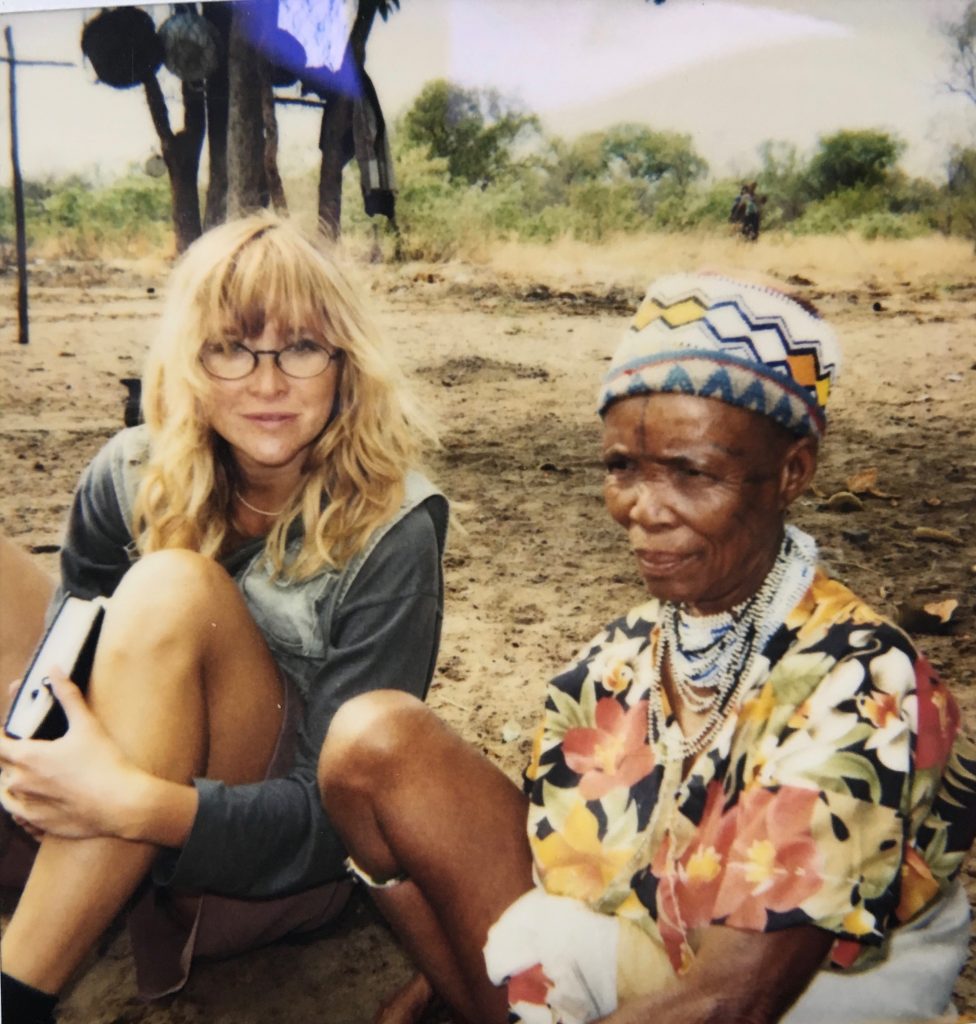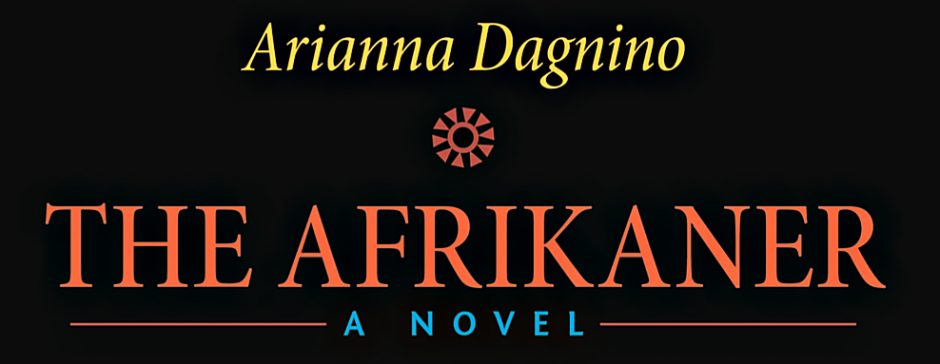Interesting points
-
The pages that deal with the San people are inspired by a long expedition into the
 Kalahari Desert the author undertook in 1997 with former Etosha Park ranger Allan Cilliers and photographer (and husband) Stefano Gulmanelli. The expedition’s aim was to accompany the Italian underground rock band Afa (Acid Folk Alleanza) among the the last, freely roaming tribes of Namibia’s hunter-gatherers and record their traditional music and sounds. In 1996 AFA produced the album “Nomade Psichico,” which contains the track “Fossili“; Fabrizio Tavernelli was the frontman of the group, which dissolved in 1999. “Armonico,” the last album AFA produced before its dissolution, contains sound, music field recordings, samples, voices and suggestions drawn from the band’s time in Namibia’s Kalahari Desert.
Kalahari Desert the author undertook in 1997 with former Etosha Park ranger Allan Cilliers and photographer (and husband) Stefano Gulmanelli. The expedition’s aim was to accompany the Italian underground rock band Afa (Acid Folk Alleanza) among the the last, freely roaming tribes of Namibia’s hunter-gatherers and record their traditional music and sounds. In 1996 AFA produced the album “Nomade Psichico,” which contains the track “Fossili“; Fabrizio Tavernelli was the frontman of the group, which dissolved in 1999. “Armonico,” the last album AFA produced before its dissolution, contains sound, music field recordings, samples, voices and suggestions drawn from the band’s time in Namibia’s Kalahari Desert. - Kurt van der Merwe’s character draws upon the life, work and ideas of two legendary South African writers whom the author personally met.
- The passages on the excavation work in the Kalahari Desert loosely refer to the 1998 Sterkfontein finding by Dr Ron J. Clarke. The author was amongst the first journalists admitted to view the Australopithecus’s skeleton discovered in the underground Sterkfontein set of caves (a “Wander Hole” discovered in 1896 by the Italian prospector Guglielmo Martinaglia).
- The accounts about the 32nd Battallion are drawn upon two long conversations the author had with Col. (Ret.) Jan Dirk Breytenbach and a former member of the ‘Recces’ (South African Special Forces) who took part in the South African Border War.
Themes and issues discussed in the book
- The transition from the apartheid regime to the first democratically elected black government in South Africa.
- Paleoanthropology and the origins of the human species.
- Social issues related to race relations, post-colonialism, neo-colonialism.
- Khoi-San (Bushmen) culture.
- The impact of the Cold War in Africa and the proxy wars
- Southern African history.
Soundtrack (a selection):
- Fossili (Fossils) by AFA (Album: “Nomade Psichico”)
- Mandela’s Tribute by Jubulile Maju
Please, feel free to provide alternative soundtracks for The Afrikaner‘s reading sessions by sending me an email: aridag at me dot com
Key Words:
Travel, adventure, on the road, South Africa, Afrikaans, apartheid, race, racism, identity, white, black, culture, cultural survival, Border War, Breytenbach, Johannesburg, Soweto, Sandton, Karoo, Cape Region, Cape Town, Franschhoek, Pretoria, Cape Region, Atlantic Ocean, Indian Ocean, Namibia, Kalahari Desert, Cape Wines, vineyard, Drostdy Hotel, Graaf-Reinet, Valley of Desolation, Free Orange State, Saldanha, Afrikaner, Zulu, Xhosa, Bantu, Shangaan, Bushmen, San People, Coloured, Hottentot, Ju/Hoansi, Khoi-San, !Kung, hunter-gatherer, shaman, sangoma, medicine man, Rasta, dagga, weed, marjuana, thorn tree, bush, elephant, gazelle, Nyae Nyae Conservancy, ranger, 4×4, Land-Rover, Finistère, vigneron, estate, farm, stoep, Land’s End, trance dance, healing dance, war veteran, baobab, tsamma melon, antelope, duiker, sunset, moon, stars, sand, rainy season, on the road, Aha Hills, tribe, Tsumkwe, Windhoek, Baster, Gansbaai, Langebaan, Sterkfontein, paleontology, hominid, fossils, Eve, female scientist, academia, university, gay, Witwatersrand, Philip Tobias, Lucy, Raymond Dart, early humans, science, tradition, superstition, religion, Australopithecus Africanus, Homo Habilis, paleoanthropology, Zanzibar, Europe, America, proxy wars, Cold War, comunism, history of South Africa, gay couple, love, grace, disgrace, shame, guilt, redemption, Zoe du Pleassi, Kurt van Der Merwe, Cape Dutch, fiction, popular fiction.

 https://blogs.ubc.ca/afrikaner/follow
https://blogs.ubc.ca/afrikaner/follow 
